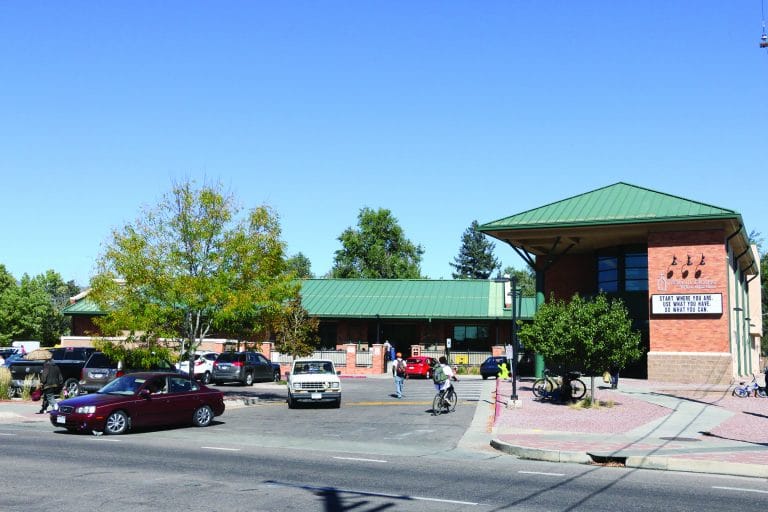

By Andy Barton, President & CEO, Catholic Charities of Central Colorado
In a six-year span from 1845 to 1851, starvation and illness took the lives of more than 1,000,000 Irish people. That period is known to most of us as the Irish Potato Famine and it led to an innovation that we still use 175 years later: the soup kitchen.
In an effort to ease the suffering of the famine, large pots were placed over fires in buildings where volunteers cooked massive amounts of broth made from bits of turnips and fat drippings. Some were set up by the Quakers, but most were established by the British government, who stated that they could feed 100 Irish on one-pound sterling. This dubious claim was an expression of the intent: serving soup was the cheapest way to provide enough calories to prevent starvation. This approach did little to address the root problems of the famine and ultimately failed.
It was immigration, rather than soup kitchens, that saved Irish lives during the famine. Over the course of the mid-19th century, 4.5 million Irish would leave their homes, bound for America with no income and no place to live. For these poor, Irish families in a strange land, the only thing that was familiar was the Catholic Church, and it was the Church that helped the newly arrived immigrants find stability.
Over generations, those Irish became Americans helping to build the social and physical infrastructure of the United States. When the growing nation encountered poverty and famine of its own, the soup kitchen concept was revived. For the most part, the American iterations were more effective. However, they were still, fundamentally, filling stations for calories to prevent starvation.

Given this history, it has always felt a little uncomfortable calling the Marian House a soup kitchen. Today, even during the massive disruptions of a pandemic, people are not starving to death on the streets of Colorado Springs. And the menu offers a lot more than soup. Instead, volunteers serve nutritious meals prepared by talented cooks. These meals are served to men, women and children who are living paycheck to paycheck in increasingly expensive housing, or in low-income housing, in their cars, in a shelter, or on the street. In reality, the Marian House is less aligned with the soup kitchen of the Irish Potato Famine and more reminiscent of the Church’s transformational work with those first Irish immigrants in Boston and New York. Like those immigrants, who stepped off their boats with nothing, our poor today are not just lacking sufficient incomes, savings, and affordable housing, they are struggling with health issues — both mental and physical — and they are struggling to provide stability for their children. Catholic Charities believes that, like those immigrants, our poor can thrive with the right support.
None of this is to suggest that the Marian House meal is anything less than vitally important. It is hard to do anything when you have an empty stomach. While people are not starving on the streets, many are food insecure and hungry. However, food can be so much more than calories. Food can be a portal for work. Food can be family stability. Food can be health, and as it has always been at the Marian House, food can be love.
For all these reasons, we have decided to let go of the word “soup” in our name. We are now the Marian House Kitchen. This is a small change with big implications and we think it reflects the reality of who we are and where we are going. In the past three months, our daily meal has evolved into an even more dignified, restaurant-type dining experience. Today, guests are seated at round tables rather than picnic-style rectangular tables. They are served a plated meal when they are seated instead of going through the cafeteria-style line with a tray.
Other changes are also on the way. We believe we can leverage the power of food even more effectively with plans for a food pantry and a food-based social enterprise to create on-site jobs for those we serve.
Anyone who has been a part of the daily meal at the Marian House Kitchen, from guest to server, has experienced the power of that place. It is the symbol in our community for the love of neighbor that is so profoundly called out in Matthew’s gospel: “For I was hungry and you gave me food.” The Marian House has served this role for over 40 years and we will continue to do so for years into the future. In the process, Catholic Charities will be helping today’s poor and vulnerable achieve the type of generational success that those Irish immigrants achieved so many years ago when they first arrived in America.








